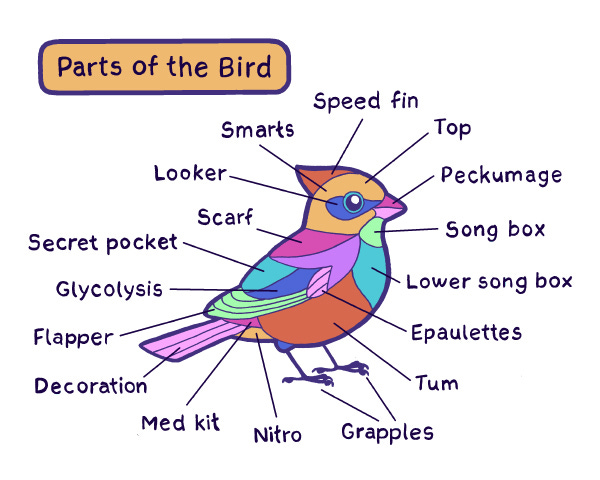📢 Why People Share Fake News
People believe accuracy matters, but their behavior shows the opposite
Misinformation has been around throughout human history, but with the expanding influence of social networks, it’s spreading faster and wider than ever before. Although there’s plenty of discussion around the urgency of mitigating this problem, we don’t seem to be nearing any workable solution.
The problem is it’s hard to find a solution without truly understanding why people share fake news. The easy answer is that they “do it for the clicks” and “don’t care about the truth”, but the explanation appears to be less cynical than that for most people. Fortunately, research is starting to shed light on what’s going on in people’s minds when they share misleading articles and promote corrupt sources.

🗣 How misinformation spreads like wildfire
Earlier this year, a group of researchers from MIT and the University of Regina published a paper comparing 3 hypotheses. Each hypothesis made a prediction about why people might share fake news:
Because people are confused about what is accurate vs inaccurate news.
Because people care more about partisanship than accuracy.
Because people aren’t paying attention to accuracy when they share news.
The researchers ran experiments to see which hypothesis would come out on top. In their first experiment, they recruited over 1000 online participants and showed them 36 news headlines that had been shared on social media. Half of those headlines were real news while the other half were fake news, and some from each group were friendly to Republicans while the others were friendly to Democrats.
Participants had to answer one of two questions for each headline: 1) Do you think the headline is accurate? 2) Would you consider sharing the headline on social media?
The data showed that people could tell the difference between accurate and inaccurate headlines. Overall, they were 56 percentage points more likely to rate real news as accurate than fake news as accurate. People were also more likely to believe headlines consistent with their own political bias, but this was a smaller effect with only a 10-percentage-point advantage over politically inconvenient headlines.
Political beliefs had a more dramatic effect when it came to the question of sharing. A headline’s political lean mattered more than a headline’s accuracy when people were deciding whether they wanted to share it. Here’s an example of a fake news headline quoted in the research paper: “Over 500 ‘Migrant Caravaners’ Arrested With Suicide Vests”. Although only 16% of Republicans rated this headline as accurate, 51% considered sharing it.
So the spread of fake news doesn’t seem to be merely a problem of confusion. Even when people know a headline is false, they still consider sharing the headline. And since most participants in the study reported that it was “extremely important” to share only accurate news, there was no clear preference for partisanship over truthfulness either. Therefore, the researchers’ third hypothesis—not paying attention to accuracy when sharing content—may be the frontrunner.
To test this third hypothesis directly, the researchers set up another experiment. This time, they showed people 24 headlines and asked them how likely they’d be to share each headline on social media. But right before this task started, they primed some participants to focus their attention on truthfulness by asking them to rate the accuracy of a politically neutral headline. Everyone else—i.e. the control groups—either went straight to the main task or completed an irrelevant distraction question first.
Everyone was equally likely to share truthful news headlines, but people who were primed to focus on accuracy were less likely to share fake news. Compared to people in the control groups, the primed people showed a 2-3 times stronger preference to share truthful news over fake news. And they were especially immune to sharing the most blatant examples of misinformation.
So the problem appears to be quite simple: People share fake news because they’re not paying attention to content accuracy when they hit the share button. But the researchers went one step further by testing whether their attention priming intervention would reduce the spread of fake news in the real-world setting of the Twitterverse.
To start their final experiment, the researchers sent a private message to over 5000 Twitter users who had previously shared news articles from untrustworthy sources. The message contained a simple question: “How accurate is this headline?”. The headline referred to a politically neutral news story about a woman giving birth after having her ovary frozen in childhood, but the story itself was irrelevant. The point of the message was simply to prime recipients to focus their attention on news accuracy so that the researchers could analyze its effect on tweeting behavior for the next 24 hours.
The message worked. Overall, in the 24 hours following the message, people shared more reliable news than they had before. More specifically, it was their passive retweeting activity (i.e. sharing other people’s posts without comment) that really made the difference. They became more likely to retweet information from news sources with stronger editorial standards.
The fact that retweeting without comment was most affected is interesting because it fits well with the attention hypothesis that the researchers started with. Creating your own original message requires a lot of attention to accuracy, so you’d expect an attention-boosting intervention to be wasted there. But with retweeting, which can be done in one swift tap, a momentary lack of attention can easily cause people to share fake news. So magnifying people’s attention to the accuracy of their news feed beforehand can make all the difference.
⭐️ Takeaway tips
Delay sharing: Most of us agree it’s important to avoid sharing fake news. But it’s not always easy in the spur of the moment. We see something in our feed that catches our eye and fits our preconceptions, and we’re immediately tempted to share it with our own audience. Intentionally delaying any impulse to share gives you more time to focus on the accuracy of what you find and also more time to discover any new information that might disprove what you originally saw. So rather than avoiding sharing entirely, just introduce a delay between seeing and sharing.
Just ask “is this accurate?”: I’ve been thrown off more than once by this simple question from friends after sharing an interesting story with them. It suddenly shifts my mindset from “this is a cool story I want to tell everyone about” to “maybe this story didn’t really happen”. A good story can be compelling regardless of whether it’s fact or fiction, so we often want to retell it immediately. But as stories get easier to share on social media, and our attention gets stretched across more and more stories as we scroll, the line between fact and fiction gets blurrier. Next time you hear a great story from a friend (whether it’s online or in person), don’t hesitate to ask whether it’s accurate and see whether they hesitate and suggest you double-check it.
Use good consensus reasoning: You can always find a random expert to support any argument. When relying on expert sources, it’s safer to trust a consensus, but sometimes it’s not clear what the true consensus is. A recent study trained people to distinguish reliable from unreliable sources of consensus. After training, people successfully used their new skills to correct their own misperceptions about important scientific topics. The authors of the study taught a 3-step process in helping people to reach better conclusions about complicated topics. As they describe it, “if a claim satisfies all three conditions, it is very likely to be true. Otherwise, we cannot know whether the claim is true or not”:
Look for a statement indicating consensus (e.g. “a majority of people say X”).
Check the source making the claim about a consensus (e.g. is it a scientist from a respected university or organization?).
Evaluate the expertise of the consensus group (e.g. does the consensus reflect a relevant group of people, such as biologists answering a biology question or economists answering an economics question?).
💡 A final quote
“Censorship no longer works by hiding information from you; censorship works by flooding you with immense amounts of misinformation, of irrelevant information, of funny cat videos, until you’re just unable to focus.”
~ Yuval Noah Harari (in a conversation hosted by The Guardian)
❤️ If you enjoyed this, please share it with a few friends. If you’re new here, sign up below or visit erman.substack.com
📬 I love to hear from readers. Reach out any time with comments or questions.
👋 Until next time,
Erman Misirlisoy, PhD



